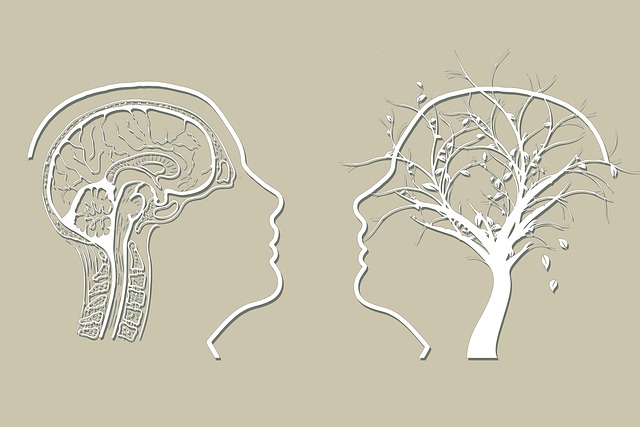Wheat Ridge Couples Counseling Therapy offers specialized support for individuals and couples dealing with trauma, focusing on healing past traumas, improving self-esteem, and strengthening relationships. Their evidence-based approaches, including CBT and mindfulness exercises, create a safe space for processing complex emotions while fostering resilience and empowerment through tailored interventions. The practice prioritizes safety, trust, and non-judgmental communication, integrating Trauma Support Services to enable clients to lead fulfilling lives post-trauma.
Trauma support services are vital for individuals seeking healing and restoration after adverse experiences. This article explores the comprehensive approach of Wheat Ridge Couples Counseling Therapy, delving into understanding trauma’s profound impact on both individuals and relationships. We highlight how specialized therapy creates safe spaces, employing effective strategies to assist survivors in processing their past. By examining these techniques, we aim to illuminate the transformative potential of Wheat Ridge Couples Counseling Therapy in helping clients reclaim their lives.
- Understanding Trauma and Its Impact on Individuals and Relationships
- The Role of Wheat Ridge Couples Counseling Therapy in Supporting Trauma Survivors
- Creating a Safe and Therapeutic Environment for Trauma Work
- Effective Strategies and Techniques for Trauma-Informed Practice
Understanding Trauma and Its Impact on Individuals and Relationships

Understanding trauma is paramount when discussing support services provision. It’s a complex psychological response that can arise from experiencing or witnessing life-threatening events, such as accidents, violence, or natural disasters. The impact of trauma extends beyond the individual, affecting relationships and social interactions. When left unaddressed, traumatic experiences can lead to long-lasting mental health issues, including anxiety, depression, and post-traumatic stress disorder (PTSD).
At Wheat Ridge Couples Counseling Therapy, we recognize that trauma can disrupt attachment styles, communication patterns, and emotional regulation within relationships. Our crisis intervention guidance is tailored to help individuals process and heal from past traumas while fostering healthier connection with their partners. By integrating Trauma Support Services into our practice, we aim to improve self-esteem, enhance coping mechanisms, and strengthen interpersonal bonds, ultimately empowering clients to lead fulfilling lives.
The Role of Wheat Ridge Couples Counseling Therapy in Supporting Trauma Survivors

Wheat Ridge Couples Counseling Therapy offers specialized support for individuals and couples dealing with trauma, providing a safe space to process complex emotions. Through evidence-based therapeutic approaches, therapists help clients develop self-care routines focused on cultivating inner strength and resilience. This proactive strategy not only aids in managing symptoms but also empowers survivors to navigate their healing journey effectively.
The therapy incorporates risk assessment techniques to ensure the well-being of both clients and mental health professionals, allowing for tailored interventions. By fostering open communication and understanding, Wheat Ridge Couples Counseling Therapy becomes a transformative force, assisting trauma survivors in reclaiming their lives and finding solace.
Creating a Safe and Therapeutic Environment for Trauma Work

Creating a safe and therapeutic environment is paramount when offering trauma support services. At Wheat Ridge Couples Counseling Therapy, we prioritize establishing a nurturing space where individuals feel seen, heard, and understood. This involves creating physical and emotional safety by ensuring confidentiality, maintaining a calm atmosphere, and using non-judgmental communication. Our trained therapists create an environment conducive to healing, where clients can explore their traumatic experiences at their own pace without fear of retraumatization.
This process goes beyond just providing a quiet room; it involves structured therapeutic techniques. By integrating evidence-based practices, we facilitate emotional regulation and stress management skills through techniques like cognitive behavioral therapy (CBT) and mindfulness exercises. Additionally, social skills training is incorporated to help individuals rebuild connections and regain a sense of security after trauma. Through these comprehensive approaches, clients at Wheat Ridge Couples Counseling Therapy are empowered to navigate their healing journey effectively.
Effective Strategies and Techniques for Trauma-Informed Practice

In trauma-informed practice, understanding the complex nature of traumatic experiences is key to providing effective support. At Wheat Ridge Couples Counseling Therapy, therapists employ strategies that prioritize safety, trust, and empowerment. This involves creating a non-judgmental environment where individuals feel heard and validated, which can be achieved through active listening and reflective techniques. Encouraging self-awareness exercises and fostering open communication helps clients process their trauma at their own pace.
Additionally, integrating evidence-based practices such as Eye Movement Desensitization and Reprocessing (EMDR) and Cognitive Behavioral Therapy (CBT) enables therapists to address the psychological effects of trauma. Mental Health Policy Analysis and Advocacy plays a crucial role in ensuring accessible and adequate resources for trauma support services. Meanwhile, designing effective Mental Health Education Programs can raise awareness about trauma and promote self-care strategies, creating a more supportive community.
Wheat Ridge Couples Counseling Therapy plays a pivotal role in providing trauma support services, creating safe spaces for survivors to heal. By understanding trauma’s profound impact on individuals and relationships, this therapy offers effective strategies and techniques tailored to trauma-informed practice. Through fostering secure environments, therapists enable clients to navigate their past traumas, promoting healing and enhanced well-being.













